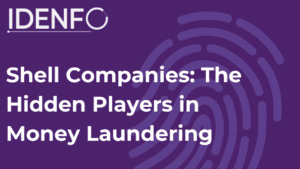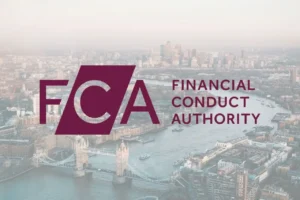The Difference Between CDD and EDD: Customer Due Diligence 101

Table Of Content
Customer Due Diligence 101: The Difference Between CDD and EDD
Customer Due Diligence, or CDD, is the strong defence that upholds the principles of reliability, safety, and compliance with laws while defending today's complex financial industry against various illegal activities. Businesses must comply with international rules by performing appropriate KYC checks to confirm the origins and identities of their potential partners/customers. Companies must know their customers' history and background when forming relationships. This rigid inspection is rarely straightforward and requires patience, diligence, and technological know-how.
What is CDD?
Companies carry out the extensive method of Customer Due Diligence, or CDD, to gain an in-depth knowledge of their clientele. A company will evaluate the threats connected to the customer and conduct several inspections as part of this procedure. This entails identity authentication and risk assessment to ensure the client isn't engaged in any illegal activity.
CDD is an essential procedure that holds great importance in several domains, such as:
Compliance with the Regulator:
KYC Conformity: CDD is a crucial component of the KYC procedure since it guarantees conformity to legislative norms.
Terrorist Financing and Anti-Money Laundering: With CDD's assistance, these two issues also significantly decline.
Risk Mitigation:
Enhanced Due Diligence is crucial in bigger deals and situations involving politically exposed parties (PEPs).
Verification of Customer Identity:
Verifying Customer Identity: Businesses can lower the probability of identity crime by using the CDD procedure, which enables them to ensure that consumers who do activities are not altering their identities.
Conducting Due Diligence Screening:
Identity Filtering: A crucial component of CDD, identity filtering entails comparing the names of clients with international surveillance lists to detect and stop the forming of relationships and partnerships with businesses or people that have been blacklisted.
What is Enhanced Due Diligence (EDD)?
A collection of KYC rules and regulations known as “Enhanced Due Diligence” was developed to verify customers with elevated risk thoroughly. It assists financial organisations in managing and keeping an eye on and determining any possible risks involved.
How is CDD different from EDD?
The main distinction between the two is that. In contrast, Customer Due Diligence focuses on conventional authentication of the client utilising Know-your-customer (KYC) requirements; enhanced Due Diligence operates under strict AML compliance laws. According to the company's risk-averse strategy, customers identified as possibly highly hazardous are subjected to enhanced due diligence.
When is EDD needed?
The criteria determining whether an EDD is required differs by industry and region. The Financial Action Task Force, or FATF, has released guidelines for the finance sector that aim to harmonise the global effort to stop illicit financial transactions and funding of terrorism.
For compliance purposes, establishments must also maintain documentation; however, local regulations will determine the time and type of data that must be preserved.
How to perform Enhanced Due Diligence?
EDD is a means of keeping an eye on customer behaviour, overseen by a group of regulatory specialists. The following is an outline of some steps that are involved in EDD:
Assessment of Risk
Determining the proper amount of risk connected with the business relationship is the first step toward conducting an EDD. Risky clients are categorised into a separate group for recognition after being identified by AML diagnosis and background investigations.
Negative Media Scanning
A component of the EDD procedure also includes searching accessible and independent sources of information for unfavourable press coverage about the client and searching for potential associations if the outcome is bad it is dangerous to do business with such a customer.
Improved Protocol for Due Diligence.
Enhanced Due Diligence is mandatory for financial enterprises in specific situations with significant danger to the organisations. Following is a list of a few of them:
- An administrator or officer chosen by the government, a political organisation, or an international organisation is known as a politically exposed person (PEP).
- Risky Country: According to the FATF, the consumer resides in a nation with insufficient AML/CFT laws. Extremely susceptible nations are also those that are not FATF members or subject to retribution.
- Foreign Clientele: Most of the company's customers are from other nations or states.
- The client resides in a nation where corruption is pervasive.
- The company does a lot of large-scale deals.
How does Idenfo Direct offer Due Diligence?
Online client identification authentication is our area of expertise; we ensure prospective customers are genuinely who they claim to be. Companies can use ID verifications, confirmation of place of residence, biometric authentication, etc., as part of the identity verification solution to confirm their customers' identity and risk level. We offer instantaneous monitoring, enabling companies to find sanctioned individuals and politically exposed people (PEPs) in time. We assist companies in meeting regulatory compliance obligations, expanding into new areas, thwarting fraud, and providing customers with a quick and easy onboarding process.








